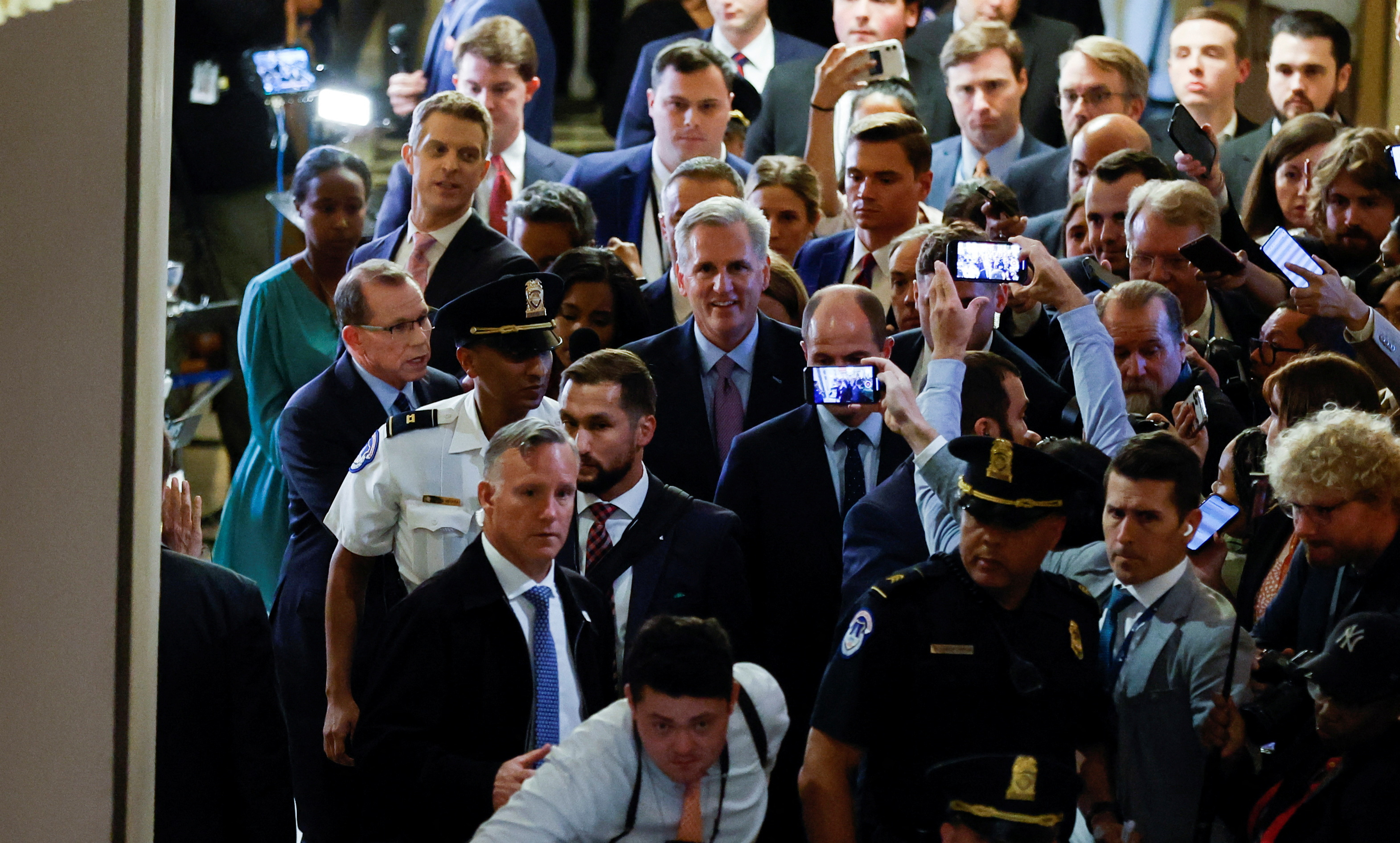
The U.S. House of Representatives for the first time in its history has booted its speaker out of the job, as infighting in the narrow and bitterly divided Republican majority toppled Kevin McCarthy from the position.
Here is a look at what comes next:
Immediately following Tuesday’s 216-210 ouster vote, Republican Representative Patrick McHenry, a McCarthy ally, was appointed acting speaker pro tempore. He can serve for only a very limited time — up to three legislative days in this case.
The acting speaker pro tempore’s duties are vague, according to a guide to the chamber’s rules and procedures: That person “may exercise such authorities of the office of speaker as may be necessary and appropriate pending the election of a speaker or speaker pro tempore.”
While the speaker sets the overall legislative agenda in the House, it is the House majority leader who schedules specific bills to debated and voted upon in the chamber.
Republican Representative Kelly Armstrong told reporters that McHenry’s main task will be to “get us a new speaker.” Anything further, he said, would spark a move to oust McHenry.
Until a House speaker is installed, it is unlikely that further action will be taken on bills to fund the government, with lawmakers facing a Nov. 17 deadline to provide more money or face a partial government shutdown.
Battles over those bills and anger over McCarthy’s failure to win extremely deep spending cuts sought by hard-right conservatives sparked the successful move by Representative Matt Gaetz to unseat him.
The House’s 221 Republicans and 212 Democrats huddled privately to figure out their next steps — both political and legislative.
Each party was expected to try to settle on a candidate for speaker. That’s fairly easy for Democrats as they are solidly behind Minority Leader Hakeem Jeffries, who ran for speaker in January against McCarthy and other candidates.
Republicans, because of their obvious divisions, especially among a small group of hard-line conservatives seeking very deep cuts in federal spending, could have a harder time settling on a candidate.
McHenry could have an advantage now that he is acting speaker. It was unclear whether he wants the job. McCarthy is not barred from running again.
The House finds itself in an unprecedented moment and so it was unclear exactly how quickly an election will be held in the full House. Normally, the elections for speaker are scheduled at the start of the new Congress every two years.
The leaders of both parties will have to decide when they are ready to enter into the process of electing a speaker.
The January endeavor was sloppy as McCarthy for days could not get enough votes to win and had to endure 15 ballots.
It could be at least as chaotic this time around for Republicans, unless they conclude that such chaos is creating a public backlash that could doom their election prospects in 2024 and they unite.
Under the U.S. Constitution, the House speaker does not have to be a member of Congress. That is the reason some Republicans have floated the name of former President Donald Trump for the job, even though he is running for president and has said he does not want the job.
The post Explainer: What are the next steps as US House searches for new speaker? first appeared on The News And Times – thenewsandtimes.com.
